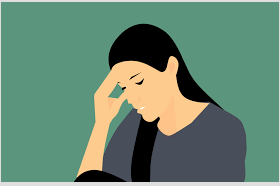Should I or should I not?

high school students spend time worrying about the classes they take and if they should drop out of it. Due to the many doubts regarding this matter, we asked some experts at SHS, including Laura Miniard, an AP Psychology teacher, who says “It’s just not worth it” to take a rigorous course if it is impacting your mental health.
No, the headline is not talking about the dilemma of choosing to eat a pastry or not (I know it’s a hard choice). I am talking about the dilemma we face when considering dropping out of a course.
There could be multiple reasons why one wants to take the step: the course is hard and is affecting your grade negatively, you don’t like the course because it turned out to be different from the expectations, you can’t handle the rigor of the course, or perhaps you think it is too easy and you want to upgrade.
But, you see, here is the catch- how do you decide if you really should drop out or not? That is a tough question, but don’t worry, we have some experts to help make it easier.
Rose Mitchell, School Counselor, on the process of dropping the class:
The process of dropping a class varies depending on the situation.
Situation 1: If a student has 7 classes, they can drop a class and add a study hall if the request is made before the end of [the] 1st quarter. The course drop request form needs to be signed by the student, parent, teacher[,] and counselor.
Situation 2: If a student already has a study hall, they will not be able to drop the class because it will result in 5 classes. Students are required to have at least 6 classes.
Situation 3: Student changing levels (for example from Accelerated Pre-Calculus to Honors Pre Calculus) will complete a course level change request form which is signed by [the] teacher, parent, student, department supervisor, and counselor. These changes can be made at the interim and the semester.
Any other unusual circumstances require [a] meeting with [the] counselor and/or assistant principal.
Valerie Nimeskern, APUSH teacher, on the decision-making required for dropping a class:
A student that is considering dropping a class should consider the following things while making a decision- Has the student put forth his/her best effort in the class? Has the student gone to the teacher for help?- Has the student listen and followed instructions from the teacher on how to improve his/her performance in the class?- Does the student really enjoy the content of the class and the structure of the class? If the student has put forth their best efforts, talked to teacher, and made changes suggested by the teacher and the student still is performing poorly, then maybe dropping the class might be the best option. If the student loves the content and the class and has carried out all the intervention pieces, but is OK with maybe getting a B in a weighted class and not an A- then the student should stick it out and keep working to improve their grade. Generally, students can improve as the year goes on, if they are putting their best foot forward
Laura Miniard, AP Psychology teacher, on why students override recommendations and why they may choose to enroll themselves in harder courses like an AP class:
if you’re not recommended you might just feel like it’s something that you should do because it’s what everybody else does, and certainly you can call that peer pressure. It’s a little bit more complicated than that, it’s more like you’re conforming… you don’t want to stand out as different or because you want to fit in with your group…So you know people see that you get a full point bit grade bump you look at the incentive of again college transcript
Mental health is more important than just about anything else and so if you’re completely stressed out about something if it’s making you anxious, and you’re generally miserable you probably want to drop the class. It’s just not worth it. The next thing is what’s your end goal. Is it okay with you if you’re in a class to get a grade less than an A or less than a B or whatever the case is for some students… they’re okay with that because of what they’re going to get out of the class what they’re going to learn…but then if you’re going to make that decision you have to make the decision soon enough that you’re not waiting for way too long when it’s really too late to drop.
Your donation will support the student journalists of Sycamore High School. Your contribution will allow us to purchase equipment and cover our annual website hosting costs.






